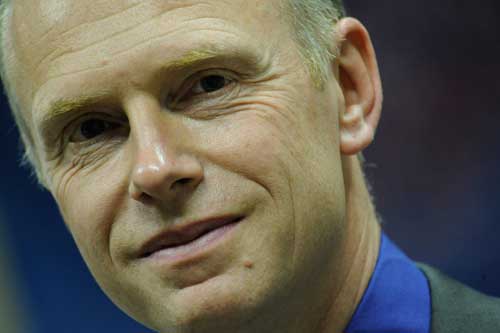A changing world: the outlook for academic and educational publishing
Cambridge University published its first book in 1584, making it the world’s oldest publisher. Given the upheaval in academic and educational publishing and the uncertainty around future business models, current Press Chief Executive Peter Phillips has a lot more on his plate than his predecessors. In his first three years at the Press he globalised its structure and transformed its operations and strategy, but with a new wave of disruption set to impact the sector, the greatest challenges lie ahead. We spoke to Peter about the outlook for 2014 and beyond.
Q1: How was 2013 for the Press?
Last year saw significant growth driven by digital products, particularly in our English Language Teaching and Education businesses. We continued our move to focus the business, with more outsourcing of operations and greater investment in new products.
Q2: You operate worldwide. Can you give us a sense of how market conditions vary?
90% of our sales are outside the UK. That global spread of our business has helped us over the last few years, with strong performances in places like Latin America and Asia offsetting more fragile markets in the Western world. The proportion of digital sales varies hugely too, with countries like Australia and the US converting rapidly while most sales in South East Asia remain physical books.
Q3: How are your customers’ expectation and behaviour changing (and how are you changing your business/products as a result?)
Obviously everywhere more and more customers want digital, often not simply as a direct replacement for physical books but as part of broader and more tailored solutions. So in areas like English Language Teaching, we’ve broadened our products to provide deeper integration with teacher support and exams, and more personalisation of the educational experience.
Q4: How do you expect the Open Access debate/landscape to develop during 2014?
Open access is growing fast but is still a relatively small part of the market, and is much more of a factor in some Western markets than elsewhere, and remains hugely bigger in life sciences than in most other subjects. I expect it will continue to grow but subscriptions and open access will coexist for some time. Oddly the governments pushing open access the most tend to be in countries which are net exporters of research. That’s likely to exacerbate funding pressures.
Q5: Looking at the industry as a whole, how might academic publishing be different in ten years time?
There is more change in the sector every month now than there would have been in a year only a decade ago, so I think there’s a very wide range of plausible outcomes. A huge amount of money is pouring into educational technology, from personalisation to social networks and it’s impossible to predict the winners and losers. Large companies are entering the market with different goals. I think the only thing which is clear is that customers’ expectations will be much higher, learning outcomes will be much more closely tracked which will make the evaluation of products much more quantitative.
Q6: What is your attitude to risk and experiment? How does that feed into strategic decisions you’re taking today?
Uncertainty about the future means we have to try out more things and to redefine failure as the experiments we didn’t learn from. It puts a premium on flexibility in all our strategic decisions.
Q7: What are your New Year resolutions for the Press?
Now that would be telling….

